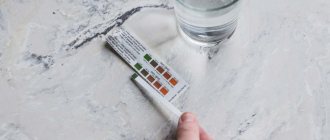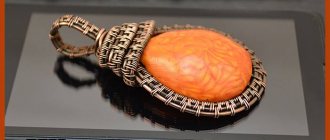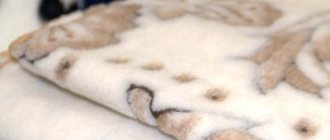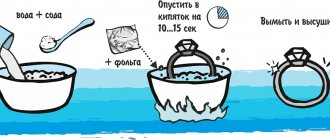23.01.2018
How to soften water and why you need to do it
Increased water hardness is indicated by a large amount of minerals in it, and, above all, calcium and magnesium. It is they that cause plaque to appear on tiles, leave marks on hair and skin, reduce the foaming of soap, etc. Such inconveniences cause people to want to soften water, despite the fact that various studies have not revealed a health threat from mineral deposits. Let's talk in more detail about how to soften water.
From this article you will learn:
- What does softened water mean?
- Why do you need softened water?
- How to soften water at home
- How to soften water using a filter
What kind of water is called hard?
“Hard” is water that contains calcium and magnesium salts in large quantities. In addition to salts, it contains a high content of heavy metals and other substances. Some chemicals decompose during the boiling process, while others retain their original formula.
Why do you need to soften water? The fact is that hard water causes household inconveniences such as the formation of strong scale and limescale, which significantly reduces the service life of the washing machine and electric kettle. In addition, such water reduces the effectiveness of foaming laundry and dishwashing detergents.
Substances contained in hard water worsen the condition of the skin and hair. If you drink such water for a long time, this leads to various disorders in the functioning of the kidneys and genitourinary system.
Why soften water
For different regions, hard water is a common feature. Many people resort to the need to soften water. The plaque that forms on the bottom of the kettle indicates a problem with water hardness.
This is often discovered when using water from an artesian well, because the level of water hardness is mainly determined by the content of calcium and magnesium in it. These mineral compounds create carbonate hardness in different waters.
- It is possible to soften a liquid with temporary hardness in 1 hour by resorting to the boiling procedure. Carbonate from the walls will sink to the bottom of the dish in the form of a whitish sediment.
- However, if water with a temporary liquid can be softened by boiling, then this method does not work for permanent liquid formed by sulfate and calcium salts. These salts will not be able to dissolve.
- The high hardness of drinking water gives it a bitter taste, and its consumption can cause damage to health. It can cause disruptions in the functioning of the stomach and intestines.
- In domestic conditions, such water will lead to damage to washing and dishwashing machines, boilers, and kettles. A negative effect on plumbing pipes has also been noticed; they become clogged and quickly become unusable under the influence of excessively hard water.
Noting all of the above, it is worth softening the level of water hardness, namely, reducing the calcium-magnesium compounds in it.
How to test water hardness at home
There are a number of ways in which you can determine water hardness at home. You can do the following:
- Use the "express test". This is an indicator that determines water hardness, which can be purchased at medical equipment stores or pet stores.
- Measure hardness using a TDS meter (conductivity meter). This electronic device is popularly called a “salt meter”, and the principle of its operation is that it measures the electrical conductivity of water. This indicator is directly related to the amount of salts contained; the higher it is, the harder the water.
It is possible to determine that water is hard without any special means. Determining its quality is possible using traditional methods:
- Lather your hands generously or dilute laundry detergent in a basin. The harder the water, the less foam the detergent produces.
- Pay attention to the condition of the kettle. Elements contained in hard water, during the heating and boiling process, settle on the walls of the cookware, forming a hard yellowish coating.
- Brew some tea. The harder the water, the longer it will take to brew an invigorating drink. If the water is of normal quality, this will take no more than a minute, and with increased hardness, brewing will take at least 7 minutes.
You can soften water in different ways; there are special means for this, but you can also use traditional methods.
Popular brands and manufacturers of softener filters
Russian manufacturers of cleaning devices today have long left behind their foreign competitors. Moreover, today such manufacturers as Atoll, Geyser, Aquaphor are conquering foreign markets! Russian brands have affordable prices, unique developments, and a wealth of experience. It is extremely difficult to compete with such initial data. This allows brands to easily conquer foreign markets.
Aquaphor
This is probably the most famous manufacturer of filter jugs. They produce everything themselves and supply consumers with any components. If you need a drinking filter, then an Aquaphor water softener for a private home will be the most affordable and convenient. But the company is not limited to ion-exchange samples.
The latest technologies in the field of softening are the calling card of this Russian, popular giant of the cleaning industry. Faucet attachments, Waterboss filters, reverse osmosis multi-stage purifiers, magnetic and household softeners, water treatment cabinet purifiers. On the manufacturer’s website you can find any models with your own hands and order delivery to anywhere in Russia.
Geyser
A competitor to the above mentioned device is the Geyser water softener for a private home. The set of advantages is the same. Consumers choose between these two representatives according to their taste. Somewhere the price outweighs, somewhere it’s the design and availability in their region. It was Geyser who developed the quasi-softening technology; the unique Aragon Bio cartridges are also his brainchild. This is the developer of the newest, most progressive technologies in the field of water purification, and from any impurities. With its filters you don’t have to worry about your health.
AquaShield
The most accessible and well-known electromagnetic device to Russian consumers. Produced by a scientific institute in the city of Ufa. The Aquashield filter is easy to install, easy to remove, and inexpensive. A convenient control interface is available to the consumer. Able to soften water in large volumes. Easy to purchase online, on the manufacturer’s website. A classic example of such softening, it is able to work without breakdowns for up to 20 years.
Barrier
And one more representative of a water softener for a private home, which will not be difficult to buy. Barrier is the third largest developer and manufacturer of cleaning devices. Represented throughout Russia and beyond. The most popular reverse osmosis models. Here, cartridges and membranes of 3-5 stage filters can be easily replaced with one hand. The company's developments are aimed at cleaning quality, but they do not forget about convenience and beauty.
Which one is better to choose and buy?
The choice of such a cabinet type water softener will always depend on several factors. The content of impurities in the water supplied to the house depends on the budget and taste of the person who buys it. Some kind of filter is better, in modern diversity it is impossible. Each manufacturer puts his soul into his brainchild. The question here is more about how much work he should do. For a private home, you often have to choose a set of several magnetic installations, because... A lot of water enters the house, and one installation is not able to process everything.
Market prices
The jug in the price ranking will be the cheapest, its cost ranges from 2 to 4 thousand rubles. An electromagnetic device will cost 10-12 thousand. And the most expensive is reverse osmosis - it starts from 12 to 25 thousand. Depending on the number of cleaning steps. They come in three-stage and five-stage.
Reviews from ordinary users
Ordinary consumers and production engineers unanimously insist that a magnetic softener is extremely necessary in the household. If the water is calcareous, then with the installation of the device, the quality of life changes dramatically. It becomes easier to wash, your hair will become fuller, even the coffee will taste different, and the coffee maker will clog less. You can forget about scale inside the kettle, and you no longer have to worry about the condition of the internal elements of the boiler or washing machine.
How to soften well water
The water in the well is not always of good quality; often the content of salt impurities and metals exceeds the norm. How to make such water suitable for household needs, bathing and cooking? Apply one of these methods:
- Boiling. When exposed to high temperatures for 40–60 minutes, most substances decompose, and the remaining elements settle to the bottom of the container as a result of subsequent settling. This water is suitable for drinking, cooking and bathing.
- Advocacy. This method is used in cases where it is necessary to water indoor flowers and crops in the garden. As a rule, owners of private houses take water from a well for this purpose. A large container is filled with water, which must stand for at least 24 hours.
- Freezing. It is better to partially freeze water by filling it in a plastic bottle and placing it in the freezer. When an ice crust forms near the walls of the vessel, the unfrozen water is poured out and the ice is left to thaw. Melt water is suitable for drinking and watering plants.
- Mixing. You can reduce hardness by mixing water from a well with soft, purchased or melt water.
- Silicon. Minerals are washed in running water and placed in a container. Then water is poured into the vessel and covered with a cloth. You need to stand for at least 2-3 days.
Cleaning water can be softened with soda ash or ammonia. This will help neutralize salts and increase the amount of suds from detergents.
Ways to soften water
There are simple ways to soften water at home with your own hands. To select a method, you need to decide for what purpose the water will be prepared - for bathing children, washing, cooking, for an aquarium, or for other household needs.
To soften water in large volumes, it is recommended to install special devices - water softening filters with an insertion into the water supply system or functioning independently.
It is possible to reduce the level of water hardness at home in the following ways:
- Standing is a simple method to perform. The water tank is placed aside for 1-2 days, away from the sun's rays. Settled water is often used for watering indoor and garden plants. Replenishment of water for these needs is carried out from wells or wells.
- Boiling is the simplest method of purifying water from hard compounds without the use of chemicals and organics. Heating to high temperatures affects the decomposition of salts and leads to their settling on the bottom of the dish. In this simple method, the beneficial properties of drinking water are lost, energy consumption increases, and scale will have to be removed.
- Freezing - this method is based on partial freezing of a hard liquid. The water is poured into a container of the required dimensions and installed in the cooling chamber. When an ice ball forms on the surface of the tank, the remaining water is poured out. The resulting ice, when thawed, will become suitable for drinking. Useful qualities will not be lost, but bad impurities will leave.
How to soften water at home using reagents
To make water soft and improve its quality, various substances are used, for example:
- baking soda (in the proportion of 2 teaspoons per 10 liters of water for technical needs and 1 teaspoon per 3 liters of water for cooking);
- table vinegar, acid or lemon juice when softening water for washing dishes or hair (1 tablespoon per 2 liters of water);
- caustic soda or lime for “technical” water (1 tablespoon per 10 liters);
- special powders or tablets.
It must be remembered that when using chemicals, it is important to strictly adhere to the indicated dosage.
Water softeners
To soften tap water and remove harmful impurities, you can use a number of special products. These include:
- Filter jugs. As a rule, the container holds approximately 3 liters of water; purification occurs through a filter cartridge that retains salts and various impurities.
- Reverse osmosis. Such a filter system costs a lot of money, but is the most acceptable option. The device is connected directly to the pipes, and filtration occurs using special concentrated solutions. Water purified in this way is intended for bathing and household needs, but it is not suitable for drinking, since the active substances involved in the purification process “kill” not only harmful, but also beneficial components.
- Ion exchange water softeners. With the help of these devices, you can not only purify water from impurities, but also enrich its composition with useful minerals. This water is suitable for drinking and bathing.
Modern methods
For us, modern people, there are simpler ways to soften hard water. To do this, just buy and install softening filters with ion-exchange resins into the supply system. They are twin tanks and work on the following principle:
- Hard water enters a compartment with resin, which “extracts” ions of calcium, magnesium and other alkaline earth elements from it.
- The depleted liquid flows into a second reservoir with ordinary table salt, where it is enriched with sodium ions - much more beneficial for the body.
- Residues containing “harmful” elements are removed along with the wastewater.
At the end we get safe and tasty softened water of normalized hardness. It can be used both for household needs and for drinking or cooking.
Different countries have their own strictness standards. Our maximum values for drinking water are set at 7 mEq/l, for technical water – no more than 9 mEq/l.
The softening effect is also obtained after running water through a reverse osmosis system. It acts completely differently: it forces liquid through a special membrane with very small pores (0.0001 microns in size) and traps impurities at the molecular level. Thus, water is freed not only from salts, but also from bacteria and other foreign elements, turning practically into a distillate.
Unfortunately, constantly eating it does more harm than good. Therefore, after purification and softening, it is advisable to pass such water through a system of mineralizers, which will enrich it with safe substances and restore optimal hardness. However, it is quite suitable for domestic needs.
Also, to protect equipment from hard water, various additives are used:
- Baking soda ash;
- Citric acid;
- Vinegar;
- Any water softener based on polyphosphates (Calgon, Eonit, Sodasan, etc.).
As you can see, there are more than enough softening methods – modern and “folk” ones. But you need to choose the right technology depending on the further use of water. It is important to remember here that chemical methods (except ion exchange) are not suitable for preparing drinking water - they are only suitable for technical needs.
Magnetic water softener
Magnetic balls are used to soften water for washing machines. This is a kind of filter that neutralizes molecules of salts and metals, thereby softening the water. Using this method of water softening will preserve the household appliance, reduce the amount of limescale deposits on the internal parts of the unit, and increase its service life.
This is an effective means for softening water; the principle of its operation is to change the composition of the liquid due to the influence of magnetic fields. In addition, this softener eliminates harmful impurities contained in water.
The filter is a cylinder equipped with permanent magnets, due to which salts and metals lose the ability to “stick” to the heating elements of various devices, and existing deposits are loosened and easily cleaned off.
For water cleaning to be effective, the pressure should not be stronger than 4 m/s. Most often, magnetic softeners are installed in boiler rooms.
Water softener rating
Before compiling the rating, careful work was carried out to find high-quality, effective devices. To do this, we studied customer reviews, based on which more than 20 popular models were selected. Next, consultations were held with specialists in the installation of softeners and sellers. This helped eliminate technical inconsistencies between products and their descriptions, as well as identify the strengths and weaknesses of each of them.
The following parameters were taken into account during the selection:
- Type – mainline, magnetic or cabinet;
- Filtration method – ion exchange or magnetic;
- Number of cleaning stages;
- Performance;
- Range of maintained temperature, pressure;
- Connection size;
- Build quality;
- Dimensions, weight;
- Guarantee period.
After studying and comparing the characteristics of all candidates, 7 winners were selected. The remaining participants were not included in the TOP due to the lack of detailed instructions, complex installation, high noise level during operation, and insufficient performance.
How to soften water for watering indoor plants
Salts and metals contained in hard will are harmful to plants. How to soften water for watering flowers?
- You can use settled and melt water, and also use liquid purified with silicon.
- The water is also softened with peat. You will need to prepare a solution in the proportion of 100 grams of peat per 10 liters of water, stir thoroughly and water the plants.
- In addition, to prepare a solution for irrigation, add wood ash (30 g per 10 liters of water). The ingredient is dissolved and allowed to brew for an hour, and then the plants are watered.
How to soften water for washing hair at home
To safely wash your hair, use boiled, melted water and softened with vinegar or lemon water. In addition, you can use the following recipes to make “soft” water:
- prepare a softening decoction with flax seeds (add 2 tablespoons of seeds to 1 liter of water and boil for 10 minutes, then leave for 40–50 minutes);
- make a herbal decoction with nettle or chamomile (2-3 tablespoons per 1 liter of water), boil for 15-20 minutes, then strain.
Plant-based decoctions not only soften water, but also reduce hair fragility.
How to soften baby's bath water
Hard water can lead to irritation on your baby's delicate skin. To prevent this from happening, you can use bathing water:
- boil for 15–20 minutes;
- soften with a decoction of chamomile or string (2 tablespoons of chopped herbs per 1 liter of water);
- eliminate hardness using potato starch (200–300 g) or baking soda (a tablespoon per liter of water);
- add a decoction of flax seeds to the washing water (4–5 teaspoons per liter of water);
- dilute sea or table salt in a bath (10 g per 1 liter of water).
The listed products will help reduce the hardness of tap water, neutralize metals and harmful impurities.











